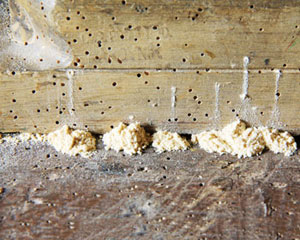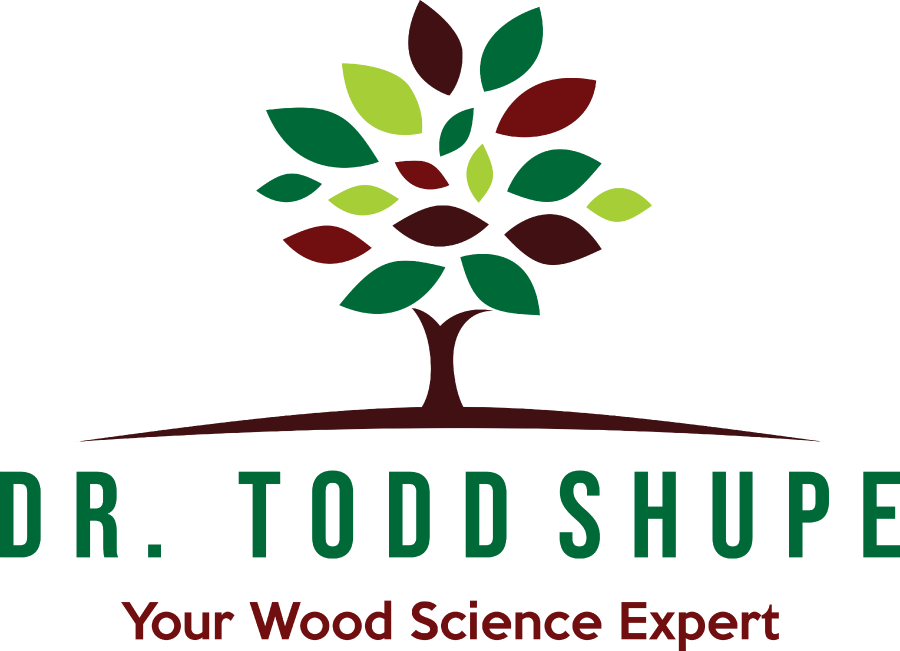Insect Problems With Kiln Dried Lumber

Image courtesy of Dr. M.F. Potter, Department of Entomology, University of Kentucky.
Kiln dried lumber offers many advantages such as reduced weight and increased strength. Most insects will not attack wood that has been kiln dried to a moisture content less then 10%. However, if this lumber is stored at ambient conditions the moisture content will eventually
reach an equilibrium with the ambient temperature and relative humidity, which varies
throughout the country but can certainly be greater than 10%.
The lumber drying process (130-140 F) can kill all insects in or on wood at the time of the drying process. If the kiln did not reach 130-140 F, then sterilization did not occur and insect eggs may emerge up to one year later. In addition, wood that is properly kiln dried may become infested during subsequent storage and transit. The longer wood sits in a vulnerable condition, the greater the chance beetles will find and lay eggs on the lumber.
If the equilibrium moisture content rises above 10%, then there are a handful of insects that can be problematic. The lyctid powderpost beetle (1/1/6 in. diameter holes) can sometimes emerge one or two years after drying. Lyctid powderpost beetles attack only wood products
manufactured from hardwoods. Consequently, infestations are often associated with flooring,
paneling, molding, window and doorframes, and furniture. Lyctids do not normally infest
structural building components (studs, joists, beams, etc.) since these are usually softwoods.
Lyctid beetles typically start emerging from wood within a year of processing. Thus, infestations usually are encountered in new homes or newly manufactured articles. In almost all cases, infestation results from wood that contained eggs or larvae at the time it was brought into the dwelling.
For more information, please read Causes and Control of Wood Decay, Degradation, and Stain.
Todd Shupe is the President of Wood Science Consulting, LLC. He is a a well-recognized expert on wood preservation, insects and fungi, wood decay and degradation, and wood species identification. He has a broad background in new product development, quality management, and marketing and sales in both the public and private sectors. For more information please visit DrToddShupe.com.

